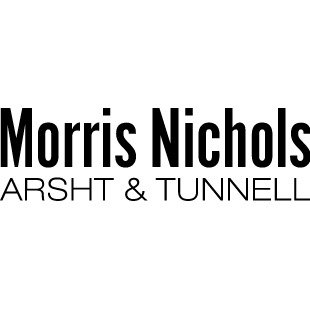Best Trademark Lawyers in Wilmington
Share your needs with us, get contacted by law firms.
Free. Takes 2 min.
List of the best lawyers in Wilmington, United States
About Trademark Law in Wilmington, United States:
Trademark law in Wilmington, United States is designed to protect the rights of individuals and businesses in relation to their trademarks. A trademark is a unique symbol, word, phrase, design, or combination of these elements that identifies and distinguishes the source of goods or services. By registering a trademark, individuals or businesses can legally protect their brand identity and prevent others from using similar marks that may cause confusion in the marketplace.
Why You May Need a Lawyer:
There are several situations where you may require legal help in trademark matters. Some common scenarios include:
- Trademark search and registration: A lawyer can assist you in conducting a thorough search to ensure your desired trademark is available and can help you with the registration process.
- Trademark infringement: If you believe someone is using a mark similar to your own and potentially causing confusion, a lawyer can help you navigate the legal process to enforce your rights.
- Trademark licensing and assignment: If you wish to license or assign your trademark rights to another party, a lawyer can ensure the agreement protects your interests.
- Trademark disputes: If you are involved in a dispute over the ownership or use of a trademark, a lawyer can represent you and guide you through negotiations or litigation.
Local Laws Overview:
In Wilmington, United States, trademark law is governed by both federal and state legislation. The primary federal law governing trademarks is the Lanham Act. Under this Act, trademarks are registered with the United States Patent and Trademark Office (USPTO). Additionally, there may be specific state laws that apply to trademarks in Wilmington. It's important to understand both federal and local laws to effectively protect your trademark rights.
Frequently Asked Questions:
1. What is the difference between TM and ® symbols?
The TM symbol is used to indicate that a person or business is claiming rights to a trademark, even if it is not federally registered. On the other hand, the ® symbol can only be used after a trademark has been registered with the USPTO.
2. Can I trademark a common word or phrase?
In some cases, it is possible to trademark a common word or phrase if it is used in a unique way that distinguishes your goods or services from others in the marketplace. However, trademarking common words or phrases can be more challenging, and it is recommended to consult with a lawyer for guidance.
3. How long does a trademark registration last?
A trademark registration can last indefinitely as long as certain maintenance requirements are met. Generally, trademarks must be renewed every 10 years to maintain their protection.
4. What is the difference between a trademark and a copyright?
A trademark protects the branding and identification of goods or services, such as logos or slogans. On the other hand, a copyright protects original creative works, such as music, literature, or artwork.
5. Can I file a trademark application myself?
Yes, you can file a trademark application yourself. However, it is recommended to seek legal advice to ensure proper and effective filing, as the process can be complex and mistakes could lead to delays or denials.
Additional Resources:
- United States Patent and Trademark Office (USPTO): www.uspto.gov
- Delaware Division of Corporations: www.corp.delaware.gov
- Delaware Bar Association: www.dsba.org
Next Steps:
If you require legal assistance in trademark matters in Wilmington, United States, it is recommended to consult with a knowledgeable trademark lawyer who can provide personalized advice based on your specific situation. They can guide you through the trademark registration process, enforce your rights, or assist in any other trademark-related matters you may require assistance with.
Lawzana helps you find the best lawyers and law firms in Wilmington through a curated and pre-screened list of qualified legal professionals. Our platform offers rankings and detailed profiles of attorneys and law firms, allowing you to compare based on practice areas, including Trademark, experience, and client feedback.
Each profile includes a description of the firm's areas of practice, client reviews, team members and partners, year of establishment, spoken languages, office locations, contact information, social media presence, and any published articles or resources. Most firms on our platform speak English and are experienced in both local and international legal matters.
Get a quote from top-rated law firms in Wilmington, United States — quickly, securely, and without unnecessary hassle.
Disclaimer:
The information provided on this page is for general informational purposes only and does not constitute legal advice. While we strive to ensure the accuracy and relevance of the content, legal information may change over time, and interpretations of the law can vary. You should always consult with a qualified legal professional for advice specific to your situation.
We disclaim all liability for actions taken or not taken based on the content of this page. If you believe any information is incorrect or outdated, please contact us, and we will review and update it where appropriate.












